Podcast: Download
Hi, everyone! Welcome to Bug Talk. I’m
your host Ryan Haynes. Today we are
going to be talking about real estate
termite inspections.
Not only is the weather hot in Florida, so
is the real estate market. Our warm
tropical climate, mild winters and access
to beautiful beaches has made Florida a
top choice for people looking to relocate.
Whether you are looking to be a
seasonal or full time Florida resident, if
you are purchasing a home you will
most likely need a termite inspection.
What exactly is a residential termite
inspection and why do you need one? A
residential termite inspection is an
inspection to specifically look for wood
destroying organisms. This type of
inspection is often required by lenders
and must be done by a licensed termite
inspector. Wood destroying organisms
can compromise the structural integrity
of buildings. The Florida climate makes
buildings highly susceptible to pests
such as termites. Florida law, Chapter
482, is there to ensure real estate
transactions are transparent regarding
past or present wood destroying
organism infestations.
During a termite inspection a licensed
professional is looking for Subterranean,
Drywood, and Formosan termites. Other
organisms include wood-decaying fungi
and powderpost beetles. Termites
specifically, can build colonies and infest
wood causing significant damage to
structures. Costs of treatment and
repairs can be thousands of dollars.
Subterranean termites build colonies
underground and build mud tubes to
access wood. These mud tubes can be
seen along the exterior of a residence
and under crawl spaces too.
Drywood termites do not need soil for an
infestation like Subterranean termites.
Drywood termites access wood directly.
The best treatment option for Drywood
termites is fumigation, also referred to
as tenting. This process is expensive
and residents are required to vacate the
structure for a few days during
treatment. This can be very stressful for
families.
Wood decaying fungi can cause wood to
rot and discolor. Moist environments can
lead to an increase in wood decay.
Often, this rotten wood will need to be
replaced. Powderpost beetles lay eggs
in wood and their larvae bore through it.
The result is a powdery residue. Other
beetles such as the Old House Borers
create large holes and they burrow in
wood. This is common in older homes
found in Florida.
Since the cost of a home in Florida
continues to be most people’s largest
investment, it is important to make sure
you are aware of any potential issues in
a home you are purchasing. A
residential termite inspection is just one
part of the inspection process to help
buyers acquire the information they
need to make an informed decision.
What does a termite inspection consist
of? A termite inspection is often
coordinated with the real estate agent,
buyer and other inspections that may be
taking place. During the termite
inspection, the inspector will carefully
check each room in the residence for
any signs of wood destroying
organisms. The inspector will check in
the cabinets, the attic and even a crawl
space if there is one. The exterior of the
residence will be inspected for signs of
rotten wood along door casings, mud
tubes and termite frass. Once the
inspection is complete, a written report
will be prepared on the form required by
the Florida Department of Agriculture.
Any findings during the inspection will
be noted, past treatments will be
documented and recommendations for
treatment if an infestation is found will
be listed on the report.
Once the inspection report is ready a
copy is sent to the buyer. From there,
the buyer can forward the termite
inspection report to any real estate
agent or lender requesting a copy.
If you are purchasing a home, a real
estate termite inspection will most likely
be required. As with any inspection,
make sure to hire a licensed
professional. Here at Haynes Pest
Control, we are here to help with your
inspection needs. If you need a termite
inspection please give us a call or send
a text. Thanks for joining us today. We
will see you next time. Remember, if it
crawls or fly’s, we’re your guys!

